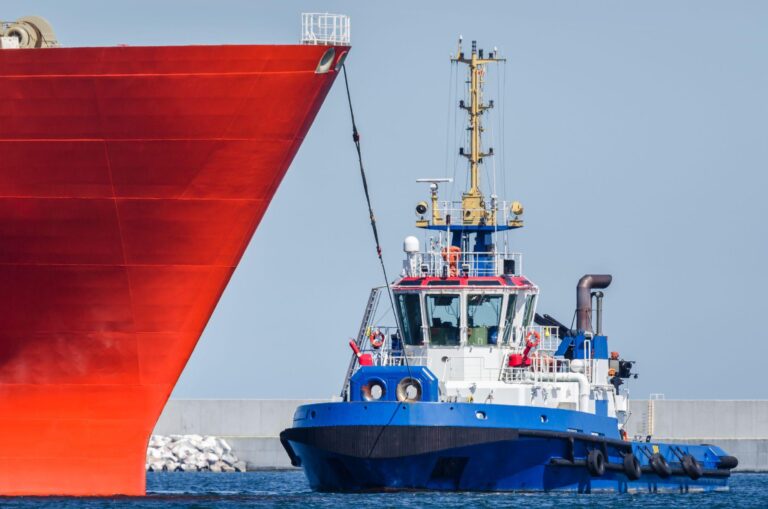Passed as part of the Merchant Marine Act of 1920, the Jones Act brought about major improvements in maritime law by granting injured seamen specific rights to seek compensation for workplace injuries. Unlike workers on land, maritime employees often face significant hurdles when trying to recover damages for injuries caused by unsafe working conditions or employer negligence.
Before the Jones Act, protections for maritime workers were limited to the general maritime law principle of “maintenance and cure,” which only covered basic medical and living expenses. The Jones Act built upon this foundation, creating a legal framework that allowed injured seamen to file injury claims and pursue additional compensation.
What Does the Jones Act Do?
The Jones Act is a federal law designed to protect seamen who sustain injuries while performing their duties aboard vessels. It provides workers with the legal right to file claims against their employers for negligence that results in injury. This law goes beyond the limited benefits of general maritime law by allowing injured seamen to recover a broader range of damages, including lost wages, medical expenses, and pain and suffering.
Employer Responsibilities Under the Jones Act
Under the Jones Act, employers are required to:
- Provide a reasonably safe working environment
- Ensure that the vessel is properly maintained and seaworthy
Employers can be held liable for unsafe conditions, such as slippery decks, poorly maintained equipment, or inadequate training.
Comparison to Land-Based Workers’ Compensation
Unlike workers’ compensation for land-based employees, the Jones Act requires injured seamen to prove employer negligence to recover damages. However, the burden of proof is lower under the Jones Act, as negligence only needs to have played a minor role in causing the injury.
The Jones Act further differs from workers’ compensation by permitting injured parties to sue their employer directly.
The statute of limitations for filing a Jones Act claim is three years from the date of the injury.
Who Qualifies as a “Seaman” Under the Jones Act?
Not all maritime workers are covered by the Jones Act, and eligibility is based on specific criteria.
Eligibility Requirements
To qualify as a seaman under the Jones Act, you must meet the following requirements:
- Time Spent on a Vessel: You must spend at least 30% of your working time on a vessel in navigable waters (often referred to as the “30% Rule”).
- Contribution to Vessel Operations: Your role must significantly contribute to the vessel’s mission or function.
The term “navigable waters” refers to bodies of water used for interstate or international commerce, such as oceans, rivers, and large lakes.
Types of Workers Who Qualify
The Jones Act covers a wide range of maritime workers, including:
- Crew members and captains on commercial ships
- Deckhands on fishing boats or tugboats
- Offshore oil rig workers and employees on supply vessels
- Cruise ship staff involved in ship operations
These roles typically involve spending a significant amount of time aboard the vessel and directly contributing to its operations, making them eligible for protection under the Jones Act.
Who Is Excluded?
Certain workers are excluded from Jones Act coverage, such as:
- Harbor workers and shipyard employees, who are typically covered under the Longshore and Harbor Workers’ Compensation Act (LHWCA)
- Administrative staff or office workers who only occasionally visit a vessel
- Passengers or guests aboard ships
For workers whose roles span both land-based and vessel duties, eligibility often depends on the specifics of their job. There are other cases where an injured person’s eligibility for a Jones Act claim is unclear and difficult to judge. Consulting a Jones Act injury attorney is the best way to determine whether you qualify as a seaman under the law.
Negligence and Employer Responsibility Under the Jones Act
A key feature of the Jones Act is its requirement that maritime employers provide a safe working environment. Failing to do so can result in negligence claims, enabling injured seamen to recover damages for their injuries.
What Constitutes Negligence?
Negligence under the Jones Act occurs when an employer fails to exercise reasonable care to ensure the safety of their crew. Common examples include:
- Failing to address hazardous conditions, such as oil spills or slippery decks
- Poorly maintained or defective equipment
- Inadequate training or unsafe work procedures
- Allowing unfit or violent crew members to remain onboard
Lower Burden of Proof
As mentioned previously, one of the most worker-friendly aspects of the Jones Act is its lower burden of proof. Unlike standard personal injury cases under general maritime law, where negligence must be the primary cause of an injury, a seaman only needs to show that the employer’s negligence played any part—however small—in causing the injury. With a Jones Act injury claim, seamen can more easily obtain significant compensation.
Why Choose Schechter, Shaffer & Harris, L.L.P.?
With decades of experience handling Jones Act claims, our maritime attorneys understand the challenges seamen face when dealing with negligent employers and insurance companies. We are committed to building strong cases that maximize compensation for our clients. Whether you’re thinking of pursuing a Jones Act lawsuit or exploring other legal options, we’ll work for your recovery and financial security. Let us guide you through the claims process and advocate for your rights every step of the way.
If you’ve been injured while working at sea, don’t wait to seek legal advice. Contact Schechter, Shaffer & Harris at 1-800-836-5830 for a free consultation with an experienced Jones Act injury attorney.









